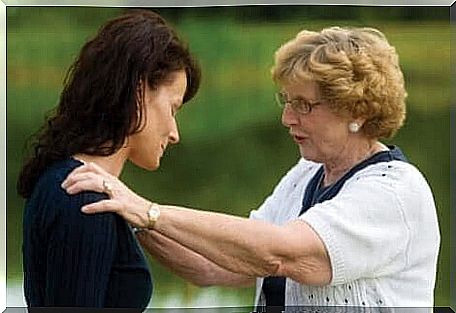To Commit Psychological Abuse On Their Adult Children

Many parents commit psychological abuse on their adult children through manipulation, blackmail, harmful words and comments that feed the insecurities of childhood. The passage of time does not guarantee that harmful childhood attachments will eventually be broken or repaired. Sometimes they continue well into adulthood where they negatively affect self-esteem and well-being.
Psychological abuse occurs in many forms and can affect anyone. Some children abuse their older parents, some parents commit psychological abuse on their young children. Even some independent men and women continue to be subjected to psychological abuse by their fathers, mothers, or both parents.
What can be done in these cases? Contacting the social services or other organizations that handle this type of issue is often perceived as meaningless by those affected. What’s the point of trying to fix something you’ve been dealing with since you were a child? Many victims of psychological abuse do not believe that it is possible to change their circumstances. They have capitulated to their situation and are still in contact with the abusive parent.
One thing is clear: an abusive parent and his child always have a bond, a connection that feeds addiction, fear and even love. It is a harmful type of love, clearly poisoned by the abuse. Unfortunately, these situations are common and can easily become chronic.

Parents who commit psychological abuse on their adult children
Psychological abuse includes all kinds of behaviors that try to control or subjugate another person with fear, manipulation, humiliation, intimidation, guilt projection, coercion and constant disapproval.
Although these types of aggressions may not leave physical marks, they do affect psychological integrity. For example, their impact on a child’s mind can be devastating. As this type of abuse continues for decades, you can imagine the consequences. It has a huge impact on, among other things, basic aspects such as self-esteem, identity and personal security.
This type of abuse does not begin when the victims are adults. It is always rooted in behaviors that began during their childhood. That explains why many people go into adulthood with heavy emotional baggage. In fact, a lifetime of psychological abuse can lead to post-traumatic stress disorder.
One noticeable aspect of this type of abuse is the extraordinary efforts people make to pretend that everything is normal. Very rarely, relatives and friends, even close ones, know anything about the abuse. Circumstances remain hidden and closely monitored.
When the monsters are your parents: normalization of psychological abuse
As we mentioned above, many parents commit psychological abuse on their adult children. Perhaps the first question you ask yourself is why this is happening. How can people endure these horrible circumstances? Wouldn’t it be better for these people to cut ties with these abusive parents?
But it’s never that simple. The connection between a victim and a perpetrator is incredibly complex. Sometimes, despite terrible circumstances characterized by anxiety, fear, humiliation and contempt, you can still love a person who is hurting you. After all, it’s your parent. If you have never experienced any other type of parent-child relationship, this behavior may seem “normal”.
Consequently, adult children continue to endure abuse and waver between love, fear, affection, and hatred. Their abusive parents do not change their behavior just because their children are adults. Contempt, criticism, humiliation and emotional manipulation continue to be useful in controlling and exercising power.
The passage of time does not turn monsters into angels. They continue to be nurtured by power and control because it is part of their personality.
What is the effect when parents commit psychological abuse on their adult children?
One of the consequences of emotional and psychological abuse that begins in childhood is post-traumatic stress disorder. Studies from Utrecht University and the University of Coimbra in Portugal have shown the importance of this relationship.
Thus, psychological abuse that continues into adulthood tends to lead to the following consequences:
- Problematic and unsatisfactory emotional relationships.
- Low self-esteem, feelings of worthlessness, damaged pride, feelings of insecurity and lack of motivation, etc.
- Emotionally oppressive and a tendency to hide emotions.
- Anxiety, stress, sleep disorders, etc.

Is there a way out?
Although this type of situation often seems hopeless, there are ways to get out of an abusive relationship. To begin with, the adult must be fully aware of the abuse and be motivated to deal with it. This is easier said than done because addiction is common in abusive relationships. Not only emotionally but also financially dependent. Many adults in this situation cannot leave the parental home because they cannot support themselves.
However, having financial stability does not mean that it is easy to cut these offensive ties. They are very difficult to break due to the perpetrator’s constant manipulation and criticism. The victims must convince themselves that their situation is unsustainable and must change.
Consequently, there are only two options. Cut the ties to the abusive parents or reduce the contact considerably.
Furthermore, adult children of parents who commit abuse need psychological help. Decades of humiliation and suffering create very deep wounds that need healing. The goal is for them to regain their self-esteem and personal security and rebuild their lives so that they can become independent and happy.









